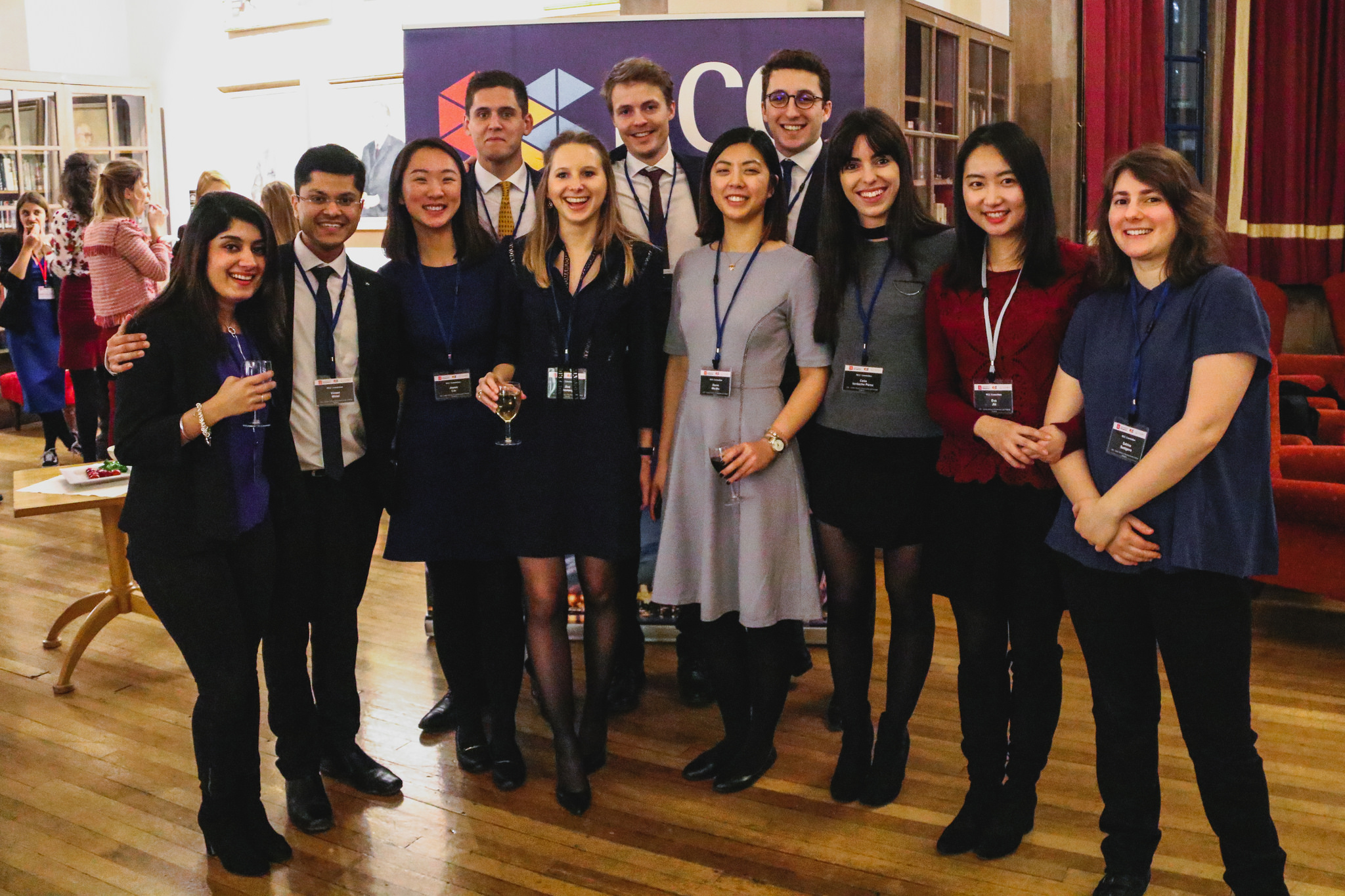Over the past two months, me and three of my fellow students Carlo, Linus and Leopoldo from the Global Master’s in Management programme at LSE had the chance to get involved with a real-world management consulting challenge.
We entered the 2017 OC&C Strategy Consultants Case Competition, and took on the challenge of developing a strategic plan for the expansion of City Gateway, an association that works to transform the lives of children, young people and women in communities who are most impacted by social and economic inequality and exclusion.
Our team Facta Non Verba (Latin for Acts Not Words) were honoured and delighted to win the competition. We learned many things along the way, and I have shared a few of the highlights from our journey below.
1. Why did we participate?
Our team, composed only of non-native Londoners, saw this competition as an opportunity to discover the city and the inequalities within its neighbourhoods. Most of us live in Hackney (a borough in East London), or very close. We were not aware that it was one of the most underprivileged areas of London, and we decided to focus on this borough as well as Newham, which has a school dropout rate among the highest in the country.
Moreover, we are all interested in consulting, and this project gave us the chance to better understand the kind of issues professional consulting teams tackle on a daily basis. We discovered what it is to debate within a debate, work under time pressure and most importantly, to deliver concrete results. Furthermore, the opportunity to present the case in the final stage to the City Gateway Team and OC&C was a unique challenge. We knew that our input would be helpful for City Gateway and that they would probably implement our guidelines, which motivated us even more!
2. What was the process like?
Our consulting challenge was to develop a strategic plan for City Gateway’s Alternative Provision branch to expand into educational programmes aimed at improving the prospects of school children and professionals.
For the first stage, we had to shoot a video explaining what our plans were to help CGAP’s growth – with very few guidelines and a lot of unanswered questions. It was very close to what we will be doing if we later decide to orient towards a consulting career. We had a lot of team brainstorming sessions, trying to understand the best way to help CGAP.
For the second stage, we were given more information and guidelines on the expectations of City Gateway. Hence, we focused on developing an advanced screening funnel as a process to enable CGAP to select from potential education providers (schools) and employers for the apprenticeship program.
Finally, for the last stage, we were asked to focus on the educational providers specifically. We extracted data from the government’s website and created a discretionary model to select the most suitable school partners for City Gateway (among +200 schools). We then gathered Ofsted reports (official governmental inspection notes) from every school and selected qualitatively the most relevant partners – 10 with a high feasibility level. Then, we presented associations and companies that fitted City Gateway’s vision and who presented potential synergies.
We were guided throughout the preparation by an employee of City Gateway, who helped us to better frame the interests of the association. A consultant also mentored us and gave advice on the structure of the presentation , which was very valuable for our work.
3. How did studying at LSE help?
We understood that the skills we were acquiring in the Global Master’s in Management at LSE were applicable in real –life cases. Since the beginning of the year, we have been developing our critical reasoning on abstract subjects, as well as on case studies. It has been worthwhile, as in our experience, it appears that consultants are often required to step back and come up with creative propositions, backed by data.
We applied statistical tools we learnt earlier in the year, and the panel recognised the level of research and precision of our analysis. But because we are also developing theoretical qualitative knowledge, we were able to refine the universe of final proposals with more qualitative sources.
Furthermore, at LSE, group work and oral presentations are encouraged. We acquired the confidence to present in front of the whole class during the year (+50 students) and in front of a diverse panel of judges. This experience was very similar to presenting in front of City Gateway Directors and the team from OC&C. At LSE, teams are often multi-cultural (as ours was for this competition), and this aligns with the rise of cross-cultural teams in the workplace.
We want to thank the OC&C organising committee, the City Gateway Management team, and Alexander Goddard, for a fantastic experience.






